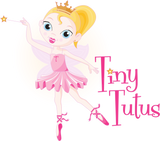The Emotional Benefits of Dance for Preschoolers
The Emotional Benefits of Dance for Preschoolers
Dance supports preschoolers’ emotional development by building confidence, emotional regulation, resilience, and social connection. Through structure, music, and movement, ballet classes like those at Tiny Tutus help children express themselves, develop independence, and feel safe while learning.
Dance Isn’t Just Physical. It’s Powerfully Emotional, Too.
If you’ve ever seen a preschooler light up during dance class, you know it’s about more than just steps and music.
At Tiny Tutus, we don’t just teach ballet, we support the whole child. That means creating space for emotional growth, resilience, and joy from the very first plié.
Because for children aged 16 months to 6 years, the emotional benefits of dance are just as important as the physical ones.
1. Dance Builds Confidence Gently and Consistently
Children learn confidence through:
- Repetition and success
- Gentle risk-taking in a safe space
- Being seen, encouraged, and celebrated
Our classes are structured to let each ballerina progress at their own pace. Whether it’s a child who leaps in from week one or a quiet observer who joins in slowly, both are growing confidence with every class.
2. Dance Strengthens Emotional Regulation
Dance teaches:
- Taking turns
- Listening to music cues
- Moving with control
- Managing excitement, energy, or overwhelm
For toddlers and preschoolers still learning how to “be” in a group, ballet offers a kind, consistent environment that strengthens self-regulation through rhythm and structure.
3. Dance Helps Children Express Feelings They Can’t Put into Words
Not all feelings can be spoken, but they can often be danced.
Through movement and music, children can:
- Express joy, frustration, or silliness
- Explore themes of light, strong, soft, fast
- Release tension through movement stories and expressive arms
This form of emotional release is especially helpful for children who are still developing their verbal language.
4. Dance Fosters Belonging and Emotional Safety
Tiny Tutus classrooms are designed to feel:
- Safe
- Predictable
- Kind
- Inclusive
This allows each child to build emotional safety through structure, repetition, and routine, while also forming friendships and social confidence.
Having parents in the room (our open-class policy) adds another layer of reassurance, allowing children to explore independence while still feeling securely connected to a trusted adult.
5. Dance Teaches Resilience (In the Loveliest Way)
When children:
- Try a new step and wobble
- Forget a part of the routine and keep going
- Stay committed even when things feel tricky
They’re learning persistence. They’re learning that it’s okay to fall and try again. They’re learning resilience in action, and that’s a skill they’ll carry into school, friendships, and life.
It’s Not Just About Movement. It’s About Becoming.
Every time your child learns a new step, joins in the music, or remembers the warm-up, they’re not just dancing.
They’re becoming:
- More confident
- More expressive
- More regulated
- More resilient
We'd love to welcome you to Tiny Tutus! Book a Class That Celebrates Every Personality today or Learn More About Our Child-Led, Confidence-Building Approach here
